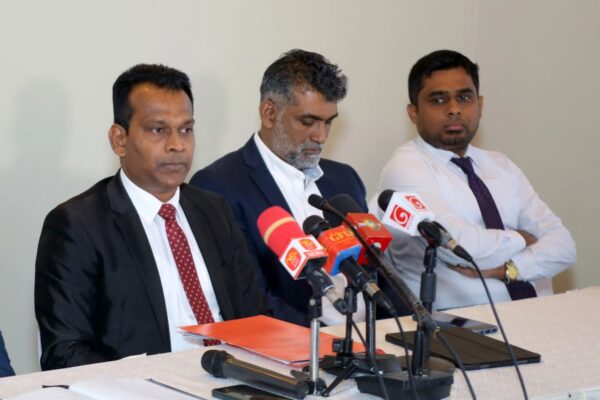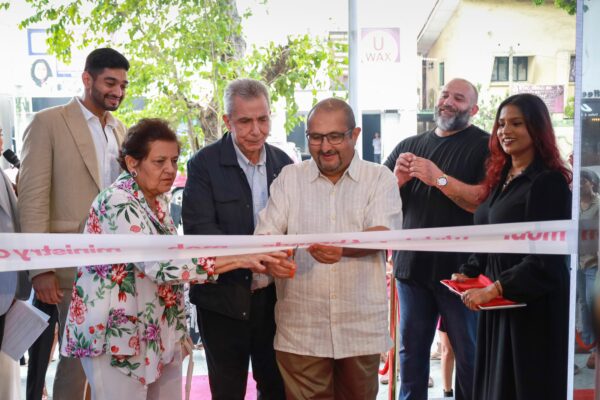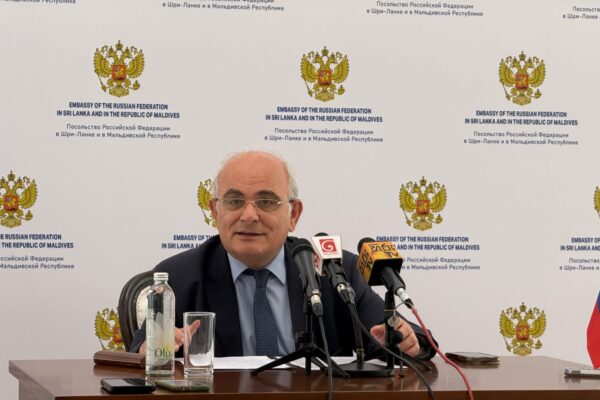COLOMBO : The Supreme Court Determination on the Colombo Port City Economic Commission Bill was tabled in Parliament earlier today (18th May 2021).
Suren Fernando, Attorney-at-Law has summarized his key observations on the Supreme Court (SC) Determination as follows.
1. Some of the clauses have been held to require a special (2/3) majority, while some have been held to require 2/3 + referendum.
2. Composition of the Commission:
Attorney General (AG) has agreed to include amendments to ensure that the majority of commissioners are Sri Lankan. (Under the original formulation, all could have been foreigners).
In response to submissions made by several Counsel on behalf of the petitioners relating to rest of the clauses of the Bill, the learned Additional Solicitor General submitted that amendments will be made to the following clauses of the Bill at the Committee Stage:
Clause 6(1)(n)
Page 9, Line 16- Insert the word “ancillary” before the word “services”
Clause 7(1)
Page 13, Line 15- Insert the words “while ensuring that the majority are Sri Lankans” after the word “President”
. – Pg 55 of the SC Judgement
3. Clauses 3(6), 30(3), 55(2), & 58(1) provided that Regulatory Authorities (RA) could be compelled by the Commission to grant requisite approvals. SC determines that this violates A.12(1). Amendments to be made to ensure that RA retain their discretion.
The provisions of Clauses 3(6), 30(3) second proviso, 55(2) and 58(1) of the Bill are inconsistent with Article 12(1) of the Constitution and could be validly passed only with the special majority provided for in Article 84(2) of the Constitution.
However, the said inconsistencies will cease if the clauses are amended as follows:
Clause 3(6)
Page 3, Line 33 – Delete the words “provide such concurrence” and substitute therefor the words “communicate its decision”
Clause 30(3) second proviso
Page 30, Line 15 – Delete the words “render such concurrence” and substitute therefor the words “communicate its decision”
Clause 55(2)
Page 49, Lines 16 and 17- Delete the words “provide such concurrence” and substitute therefor the words “communicate its decision”
Clause 58(1)
Page 52, Lines 9 and I 0 – Delete the words “render such concurrence” and substitute therefor the words “communicate its decision”
– Pg 57 of the SC Judgement
4. The SC also determines that the Commission can only exercise regulatory powers vested in other Regulatory Authorities (RA) after obtaining their concurrence, and that the RA’s power within the Port City area continues unimpeded.
Upon reading of the Bill, Court is of the view that the regulatory structure set out in the Bill lacks clarity and provides for the exercise of arbitrary power by the Commission and thus, inconsistent with Article 12(1) of the Constitution. – Pg 30 of the SC Judgement
In addition to the above mentioned amendments proposed by the learned Additional Solicitor General, Court is of the view that the following amendments must also be made to overcome inconsistency with Article 12(1) of the Constitution and ensure that the Commission in exercising regulatory powers vested in other Regulatory Authorities within the Area of Authority of the Colombo Port City, should always obtain the concurrence of the respective Regulatory Authorities and the powers of such Regulatory Authorities within the Area of Authority of the Colombo Port City will continue unimpeded. . – Pg 31 of the SC Judgement
Clause 3(7)
To be shifted after Clause 73 of the Bill and re-numbered as Clause 74. The new Clause 74 will now read as follows:
“74. Nothing in this Act shall, unless otherwise specifically provided for in this Act, be deemed to restrict in any way the powers, duties and functions vested in such Regulatory Authority by any written law in relation to the Area of Authority of the Colombo Port City.” . – Pg 32 of the SC Judgement
5. The SC determined that the power granted to the Commission (sans Parliamentary control) (clause 68(1)(f) & 68(3)(a)) to make rules etc with penal sanctions, is inconsistent with Articles 76, 3 & 4
The submission that the said clauses are inconsistent with Article 76 read with Articles 3 and 4 of the Constitution is based on the fact that the Commission is conferred with the power to make rules, codes, directions or guidelines without Parliamentary control and hence such rules, codes, directions or guidelines cannot then be the basis of any criminal sanction.
Upon a careful consideration, Court is inclined to agree with the said submission. It is the view of Court that Clauses 68(1)(f) and 68(3)(a) are inconsistent with Article 76 read with Articles 3 and 4 of the Constitution,
. – Pg 33 of the SC Judgement
6. The SC determines that the Commission cannot make Development Control Regulations (clauses 3(4) & 6(1)(u)) without Parliamentary control.
Court observes that in terms of Clause 71(2)(a) of the Bill, it .is the President or the assigned Minister who is conferred with the power to make Development Control Regulations which are then placed before Parliament for approval. The role of the Commission in this process is consultative as evinced by Clauses 71(1) and 74. However, Court further observes that contrary to Clause 71(2)(a) ofthe Bill, in terms of Clauses 3(4) and 6(1)(u) ofthe Bill, the Commission has been conferred with the power to prepare Development Control Regulations without any Parliamentary control. In these circumstances, Court is of the view that Clauses 3(4) and 6(1)(u) of the Bill are inconsistent with Article 76 read with Articles 3 and 4 of the Constitution.
. – Pg 34 of the SC Judgement
(iii) The provisions of Clauses 3(4), 6(1)(u), 68(l)(f) and 68(3)(a) are inconsistent with Article 76 read with Articles 3 and 4 of the Constitution and could be validly passed only with the special majority provided for in Article 84(2) of the Constitution and approved by the People at a Referendum by virtue of the provisions of Article 83. – Pg 58 of the SC Judgement
7. Clauses 52(3), 52(5), 71(2)(p) at present do not provide guidelines for granting exemptions. Determined to violate Articles 3,4,76. SC determines that Regulations must be promulgated specifying criteria, and Parliamentary approval must be obtained for such Regulations.
Thus, the Court determines that the requirements in Article 148 of the Constitution is satisfied when fiscal exemptions are granted in accordance with regulations made specifying the conditions under which exemptions can be granted and the approval of Parliament is obtained for such regulations. – Pg 39 of the SC Judgement
(iv) The provisions of Clause 52(3) read with Clauses 52(5) and 71(2)(p) of the Bill are inconsistent with Article 148 of the Constitution read with Articles 3, 4 and 76 of the Constitution and could be validly passed only with the special majority provided for in Article 84(2) of the Constitution and approved by the People at a Referendum by virtue of the provisions of Article 83. – Pg 59 of the SC Judgement
8. Clause 60(c) & (f) which seeks to grant taxation powers to the Commission is inconsistent with Article 148.
Court observes that Clauses 60(c) and 60(f) makes provision for the Estate Manager to collect taxes imposed by the Commission. It is significant to note that Clause 6 of the Bill which sets out the powers, duties and functions of the Commission does not confer any power on the Commission to impose any form of taxes. However, Clause 6 read with either Clauses 60( c) or Clause 60(f) of the Bill implies a power in the Commission to impose taxes. Court holds that this is inconsistent with Article 148 of the Constitution. – Pg 44 of the SC Judgement
(vii) The provisions of Clauses 60(c) and Clause 60(f) of the Bill is inconsistent with Article 148 of the Constitution and could be validly passed only with the special majority provided for in Article 84(2) of the Constitution. – Pg 61 of the SC Judgement
9. Clause 37 permits an Authorized Person to engage in business, in partnership with a citizen, outside the area of the Port City. SC determines that in such event, exemptions granted cannot apply to business carried on outside the Port City area.
The Court gave consideration to the submissions in relation to Clause 3 7 of the Bill and is of the
view that there is merit in the contention that Clause 37(1) as it stands now, is inconsistent with
Article 12(1) as well as Article 14(l)(g) of the Constitution. The Court further observes that such
inconsistency would occur in the event an authorised person is permitted to make use of the
exemptions or incentives granted to such authorised person in engaging in business outside the
Area of Authority of the Colombo Port City to the detriment of the local business community
who would not be enjoying such exemptions or incentives.
If exemptions or incentives given under this Bill is used outside the Area of Authority to the
detriment of similar local industries and services, that would infringe Articles 12( 1) and 14( 1 )(g) of the Constitution.
Although this Court does not see any reason to deprive an authorised person engaging in any
business outside the Area of Authority of the Colombo Port City, what is obnoxious is the taking
advantage of the exemptions or incentives granted to such authorised person in engaging in
business outside the Area of Authority of the Colombo Port City to the detriment of similar
businesses conducted outside such Area of Authority within the territory of Sri Lanka. This
inconsistency will cease if a new sub-clause is added to Clause 3 7 of the Bill restraining such
authorised person making use of any exemptions or incentives granted under this Bill when
conducting business outside the Area of Authority of the Colombo Port City to the detriment of
similar businesses conducted outside such Area of Authority but within the territory of Sri
Lanka.
– Pg 48 of the SC Judgement
(viii) The provisions of Clause 37 of the Bill is inconsistent with Article 12(1) and 14(1)(g)
of the Constitution and could be validly passed only with the special majority provided for
in Article 84(2) of the Constitution.
However, the said inconsistency will cease if a new sub-clause is added to Clause 37 of the Bill
restraining such authorised person making use of any exemptions or incentives granted under
this Bill when conducting business outside the Area of Authority of the Colombo Port City to the
detriment of similar businesses conducted outside such Area of Authority but within the territory
of Sri Lanka.
– Pg 61 of the SC Judgement
10. Clause 63 sought to grant such priority to cases of parties within Port City that even illness of counsel would not be a ground for postponement. AG agreed this would be amended.
The learned Additional Solicitor General submitted that for the purposes of clarity, Clause 63 of
the Bill will be amended as follows at the Committee Stage:
Clause 63
Page 56, lines 21 to 38- Delete in its entirety and replace with the following:
“In order to foster international investor confidence in the ease of doing business and in the
enforcement of contracts, in the national interest or in the interest of the advancement of the
national economy, priority shall be given by courts in relation to any legal proceedings
instituted in civil or commercial matters, where the cause of.action has arisen within, or in
relation to any business carried on in or from, the Area of Authority of the Colombo Port City,
to hear such cases expeditiously on a day-to-day basis, unless in the opinion of court,
exceptional circumstances warrant postponement of commencement or continuation of trial,
for reasons which shall be recorded by court.”
– Pg 53 of the SC Judgement
11. The Determination also lists out some of the other amendments which the AG stated would be incorporated.
In response to submissions made by several Counsel on behalf of the petitioners relating to rest
of the clauses of the Bill, the learned Additional Solicitor General submitted that amendments
will be made to the following clauses of the Bill at the Committee Stage:
Clause 6(1)(n)
Page 9, Line 16- Insert the word “ancillary” before the word “services”
Clause 7(1)
Page 13, Line 15- Insert the words “while ensuring that the majority are Sri Lankans” after the
word “President”
Clause 9(4)
Page 15, Line 4 – Delete the words “such Minister”
Clause 32
Page 31, Line 21- Insert the words “concerning or” before the word “arising”
Clause 45
Page 41, Line 4- Insert the words “offshore banking business, reserve and” before the words
“capital requirements”
Clause 46(g)
Page 41, Lines 34 and 35- Delete in its entirety
Clause 62(5)
Page 56, Line 10- Insert the words “or setting aside” after the word “enforcement”
Clause 63
Page 56, Lines 21 to 38- to be deleted and replaced with the following:
– Pg 55 of the SC Judgement
“In order to foster international investor confidence in the ease of doing business and in the
enforcement of contracts, in the national interest or in the interest of the advancement of the
national economy, priority shall be given by courts in relation to any legal proceedings instituted
in civil or commercial matters, where the cause of action has arisen within, or in relation to any
business carried on in or from, the Area of Authority of the Colombo Port City, to hear such
cases expeditiously on a day-to-day basis, unless in the opinion of court, exceptional
circumstances warrant postponement of commencement or continuation of trial, for reasons
which shall be recorded by court. “
Clause 72
Page 66, Lines 4 and 5 – To be deleted and replaced with the following:
“All rules made under this Act shall be published in the Gazette within three months of the
formulation thereof
Clause 74
Page 71, Line 2 – Delete the word “judicial” and substitute therefor the word “juristic”
Schedule 2. Item 6
Page 73- Delete reference to the “Debit Tax Act, No 16 of2002”
General Amendment
The reference to “in the national interest and the interest of the advancement of the national
economy”, wherever it occurs in the Bill, be amended to read as “in the national interest or in
the advancement of the national economy”.
– Pg 56 of the SC Judgement
12. The Determinations of the SC (and the amendments necessary if it is to be enacted without 2/3 and / or a referendum) are summarised at the end of the Determination.
(The above extracted from twitter handle @SurenFernando)













